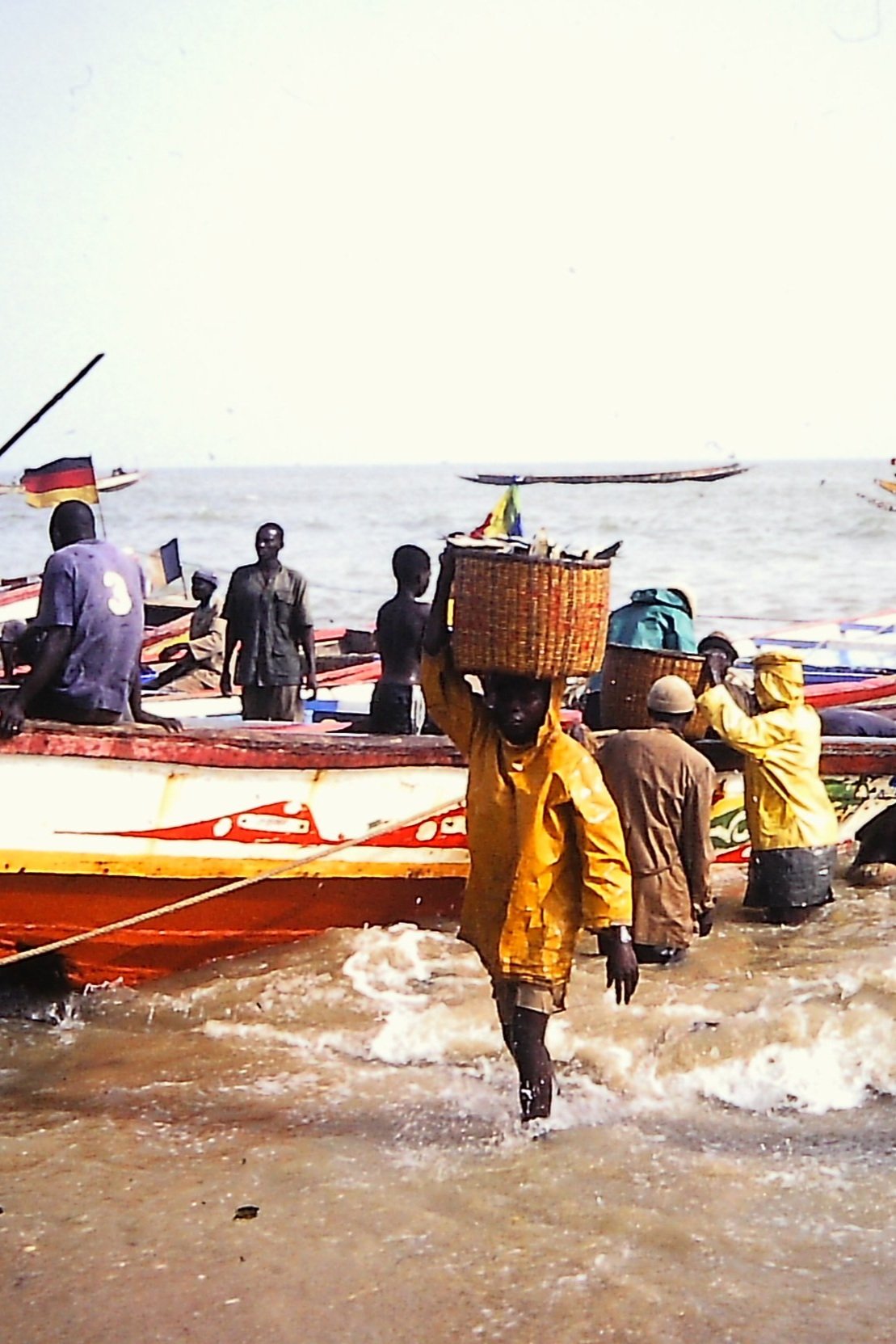OUR HISTORY
Here are some key dates of our history, from the beginnings of African fishermen's demands for fair agreements, to the creation of CFFA, the creation of the African Confederation of Artisanal Fisheries (CAOPA), and the celebration of the International Year of Artisanal Fisheries and Aquaculture (2022).
1989
In Senegal: Artisanal fishermen contact the International Collective in Support of Fishworkers (ICSF) Brussels Office to find out why European trawlers are plundering their fish. Through a contact in the European Commission, ICSF discovers that the EU pays Senegal for its trawlers to fish in Senegalese waters. Since these agreements are considered commercial, they are secret.
In Namibia: Anti-apartheid NGOs who are supporting Namibia’s quest for independence discover that Spanish vessels are fishing illegally in Namibian waters. They advocate for an agreement that would allow Namibia to control the activities of these vessels.
“We have the right to eat fish. We want our right to fish. What will we have left when all the fish is gone?””
1992
After several meetings, ICSF, CCFD, Greenpeace and anti-apartheid NGOs organize a conference in Brussels where they agree on the creation of the Coalition for Fair Fisheries Agreements (CFFA).
1994
A First! While the beginnings are difficult, with no public information available on fisheries agreements, the Senegalese artisanal fishers organization CNPS is allowed to attend as an observer the negotiation of the EU-Senegal fisheries agreement in Brussels.
1997
After three years of advocacy by CFFA, its partners and some MEPs, the Council adopts a resolution calling for "Coherence between Fisheries and Development.” DG14 (nowadays DG Mare) introduces targeted actions in the agreement which provide funds for research and sectoral support.
1999
CFFA supports the Mauritanian MP Sid’Ahmed Ould Habott, member of the ACP-EU joint parliamentary assembly, to set up a working group on fisheries. Mr. Ould Habott as its first president, and Mr. Barry Fauré, MP from Seychelles, will be key in the creation of the ACP Council of Ministers on fisheries, which now meets every 2 or 3 years.
In Nouakchott: Despite the initial mistrust, Senegalese and Mauritanian fishers meet with the support of CFFA and elaborate a common position on fishing agreements.
2001
European Commissioner Emma Bonino opens the Advisory Council for Fisheries and Aquaculture (ACFA) to NGOs. ICSF and CFFA now represent development NGOs in ACFA.
In Guinea: Professionals from Mauritania, Senegal and Guinea artisanal fishing sector meet. This meeting will become annual and will end up with the creation of the African Conferederation of Artisanal Fisheries Organizations (CAOPA) ten years later.
2006
A meeting to facilitate the dialogue between media from West Africa and artisanal fishing communities is organized. This will lead to the creation of a network of West African journalists supporting responsible fisheries (REJOPRAO).
2007
CFFA joins the task-force to set up the Long Distance Fisheries Advisory Council (LDAC) and becomes a member of the Executive Committee.
2009
CFFA, with the support of Dr. André Standing, develops TransparentSea, an initiative to promote transparency in marine fisheries. In the years to come, Dr. Standing accompanied the development of the FiTI (Fisheries Industry Transparency Initiative) while CFFA enabled African artisanal fisheries to participate to the FiTI to promote sustainable and fair fisheries.
2010
Creation of the African Confederation of Artisanal Fisheries Organizations (CAOPA).
2013
Common Fisheries Policy Reform: For the first time, a chapter on the external dimension is included, which looks in particular at fishing agreements and recognizes several of the interests of Small-Scale Fisheries in development countries.
In Ivory Coast: CAOPA, CFFA and its partners organize the first International Women in Fisheries Day.
2014
FAO adopts the Voluntary Guidelines on securing Sustainable Small-Scale Fisheries.
CAOPA calls for an African Year of Artisanal Fisheries so that African countries can focus on the implementation on these Guidelines.
2016
REJOPRAO, with the support of CFFA and the Swedish Society for Nature Conservation (SSNC), launch the SIPA, an information system on African fishing that has the ambition to become a press agency specialized in fisheries.
2019
CFFA gets a brand new look! Ahead of the International Year of Artisanal Fisheries and Aquaculture (2022), CFFA designed a logo and created a new website, and Instagram, Youtube and Linkedin accounts.
2020
During the Covid-19 crisis, CFFA launched a micro-blog to raise awareness of the impact of the measures adopted during the pandemic on small-scale fishing communities, and supported CAOPA, which saw the pandemic as a way to show the difficult working and living conditions in the sector.
2022
The International Year of Artisanal Fisheries and Aquaculture has come!
CAOPA, together with other professional fishing organisations from 5 continents, launches a Call to Action which identifies 5 priority topics for action to secure access to marine resources and markets for small-scale fisheries (SDG 14.b). CFFA supports the Call to Action, which has become a common thread in our advocacy.
2023
The signatories of the Call to Action also published the Rules of Conduct for working with small-scale fishers and fishworkers to save our ocean.
CAPE is officially committed to respecting these rules.



















